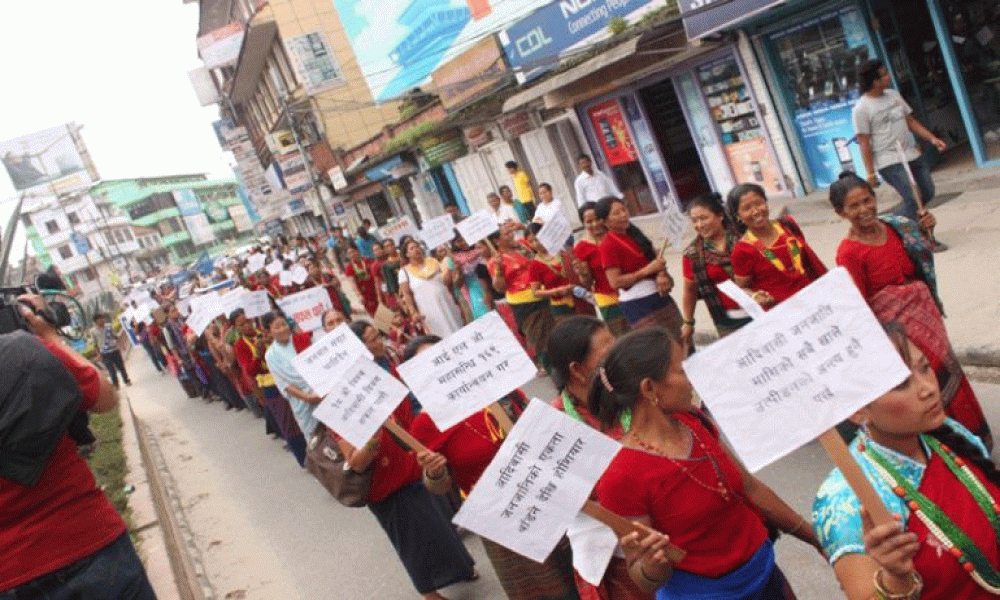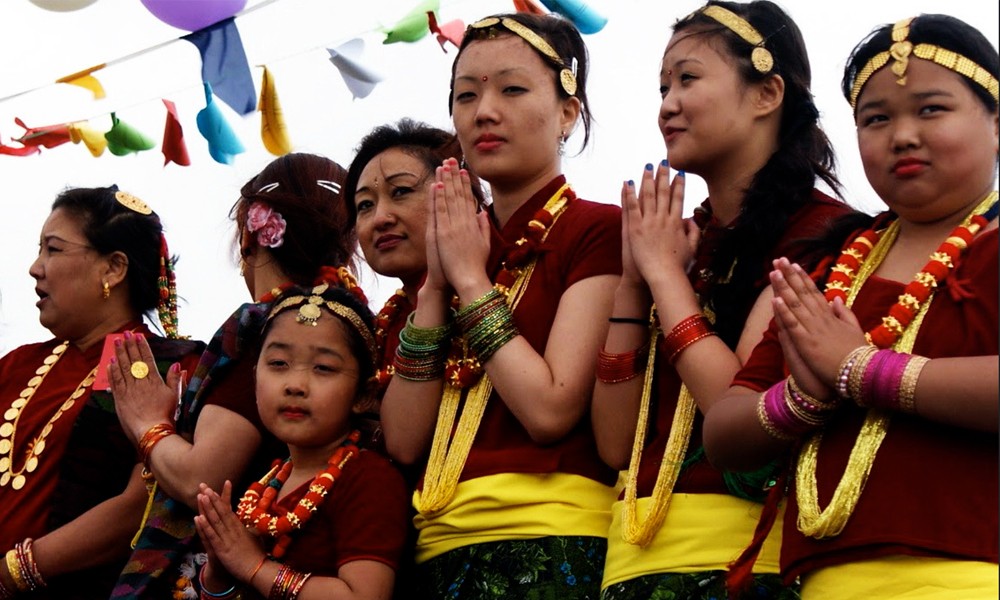Ram Maden
Governance is all about serving people. Government functionaries cannot get salaries if people do not pay tax to the state. So they always have to be accountable to the people. They must serve those who pay for their salaries. But in least developed countries like Nepal, governance has turned out to be anything but serving people. It is more like ruling the people. In Nepal, political leaders and government functionaries seem to believe that they are there to rule the people, and the people have to make do with whatever they are given from above.
As long as this distorted definition of governance prevails, the few people close to the state get everything and the most people who have been excluded from the system get nothing. This is what is happening in Nepal. Indigenous Peoples in Nepal have always been excluded. Poverty, illiteracy and lack of awareness plague them, and they feel stateless in their own state. As Nepal embarked on an arduous journey to write a new constitution nearly a decade ago, indigenous people saw it as an opportunity to get their aspirations fulfilled. But their hopes have been dashed by a regressive constitution which the major parties pushed through recently.
Janajati demands
Indigenous people have rejected Nepal's new constitution as it fails to fulfill their aspirations. The interim constitution was more progressive in recognizing aspirations of federalism and secularism. But the new constitution backtracked from what was institutionalized by the interim constitution.
Indigenous people want ethnicity and language alongside geography to be the basis for federating country. They want autonomy with rights to self-determination in their ethnicity-based provinces. They want the purest version of secularism.
Indigenous people want ethnicity and language alongside geography to be the basis for federating country. They want autonomy with rights to self-determination in their ethnicity-based provinces. They want the purest version of secularism. The diluted version of secularism that aims to preserve certain religious practices is not acceptable to them. They want effective implementation of inclusion policies to ensure proportional representation of all ethnic communities at all state organs and organizations. They want their presence in the policy making level. They want the constitution to ensure implementation of the UN Declaration on Rights of Indigenous Peoples (UNDRIP) and the International Labor Organization (ILO) convention-169. They are also demanding adequate budget from the state for socio, political and economic upliftment of indigenous people at all strata of the polity. These demands can be fulfilled only through a progressive constitution, and the new constitution has failed in this regard.
Why Janajati demands remain unaddressed
Janajatis are in majority in Nepal. Yet, they are marginalized. Yet, their voices are unheard. Yet, the new constitution has failed to meet their demands. Why are Janajati voices unheard? To find out answer to this critical question, we need to look at the history and structure of the Nepali state.
After the political change of 1990, Janajati people started raising their voice for inclusion. They demanded rights, autonomy, self-rule and proportional representation at all levels. But they were accused of being communalist or even separatist.
The history of the modern Nepali state began with unification of various principalities built by ethnic communities. The Shah Emperor conquered all those principalities and created what is now known as the modern Nepal. The Shahs ruled Nepal as their own property, and the Rana oligarchs who reduced the Shahs to the rubber stamp for 104 years were not different. They established a system that ensured education to only Ranas and Bahuns/Chhetris. As a result, the so-called high-caste people were able to penetrate into the system. They eventually dominated the system, and indigenous people were pushed to the margins.
After the political change of 1990, Janajati people started raising their voice for inclusion. They demanded rights, autonomy, self-rule and proportional representation at all levels. But they were accused of being communalist or even separatist. The hill Bahuns and Chhetris pitted Janajatis against Janajatis. As Janajatis stood divided and remained excluded, the dominant class did not care to address their demands.
(Part One)









